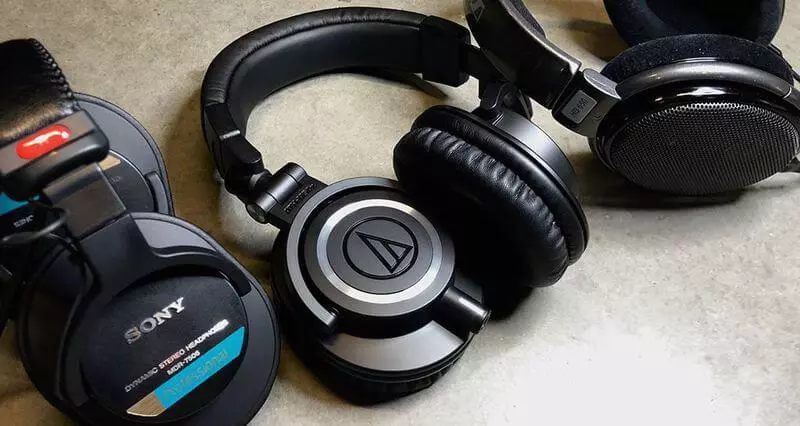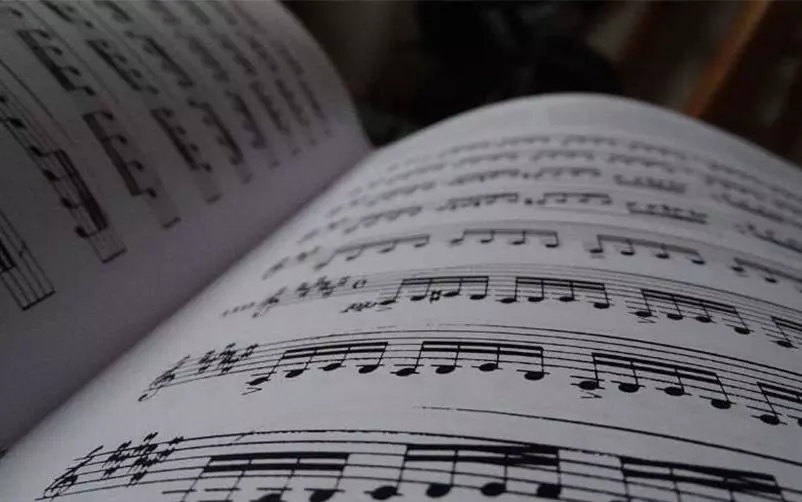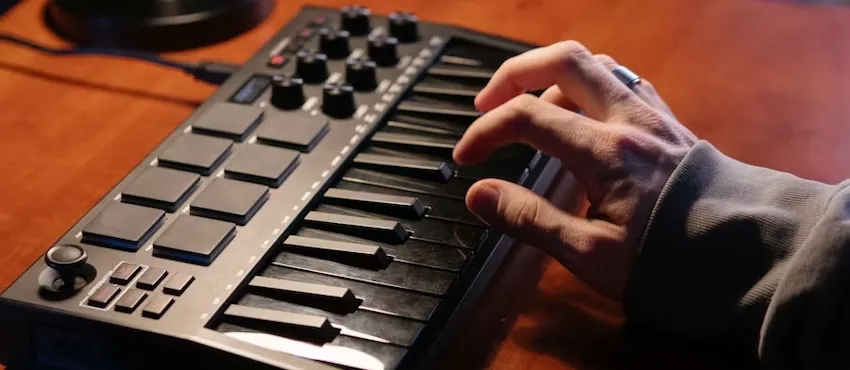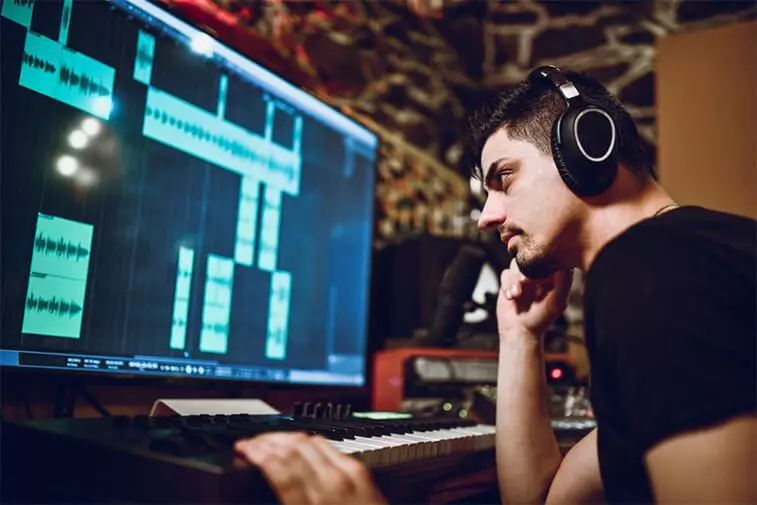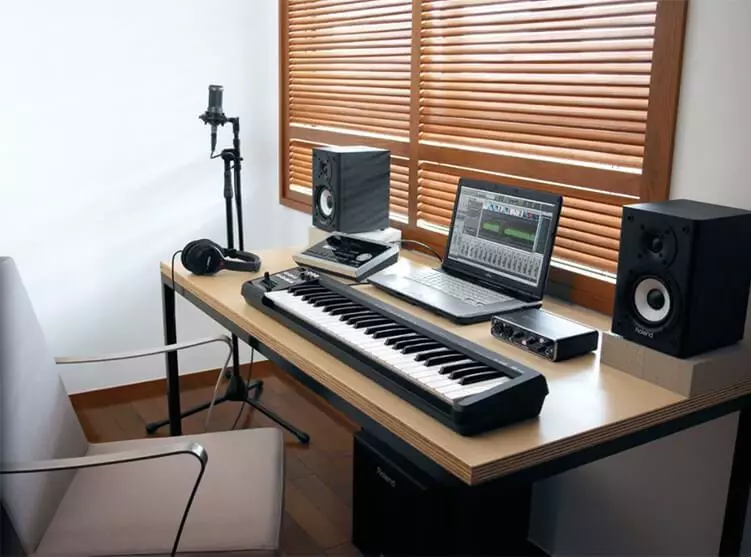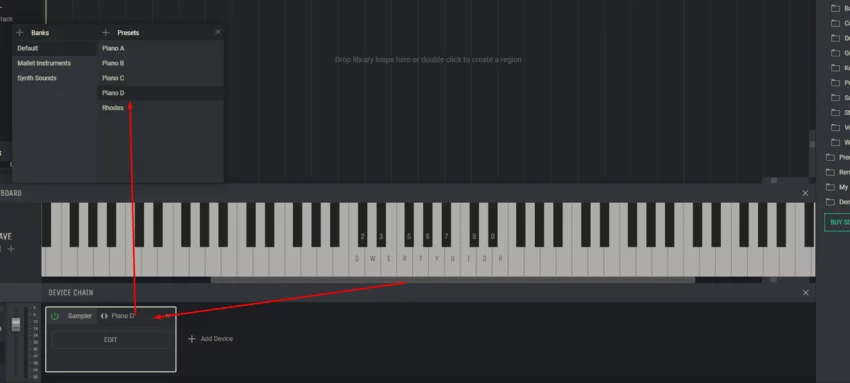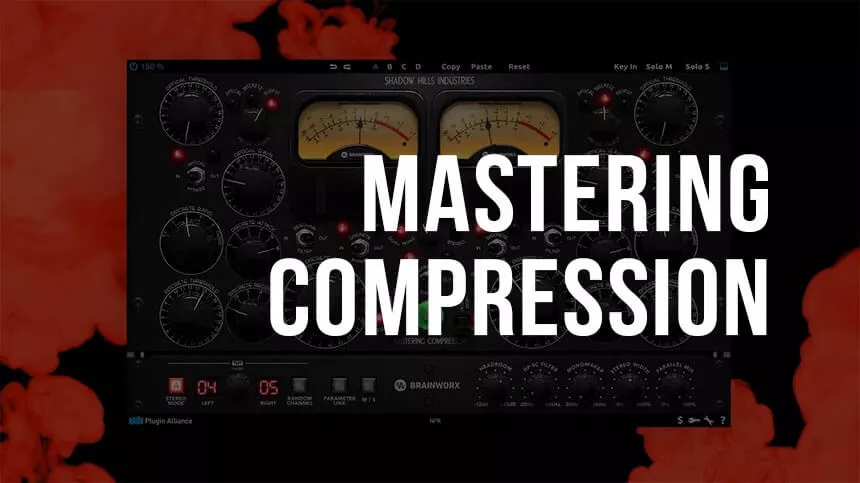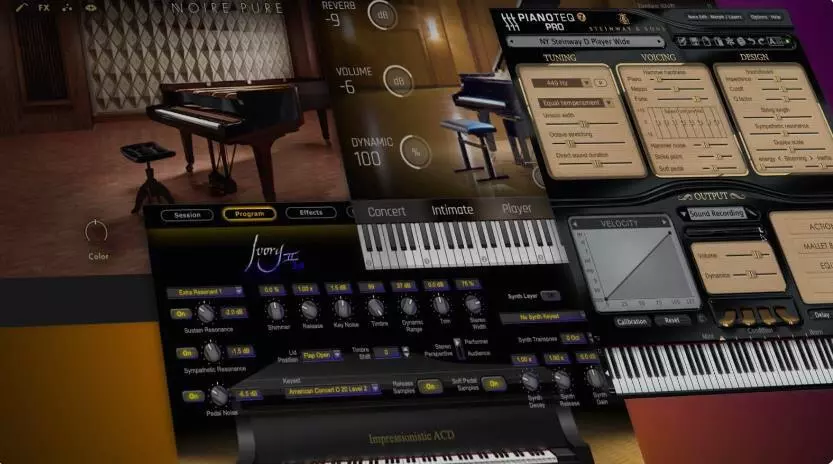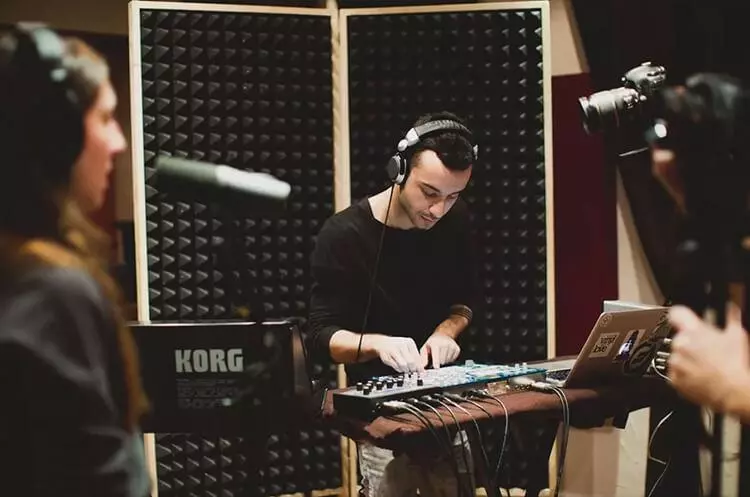How to promote your music in social media
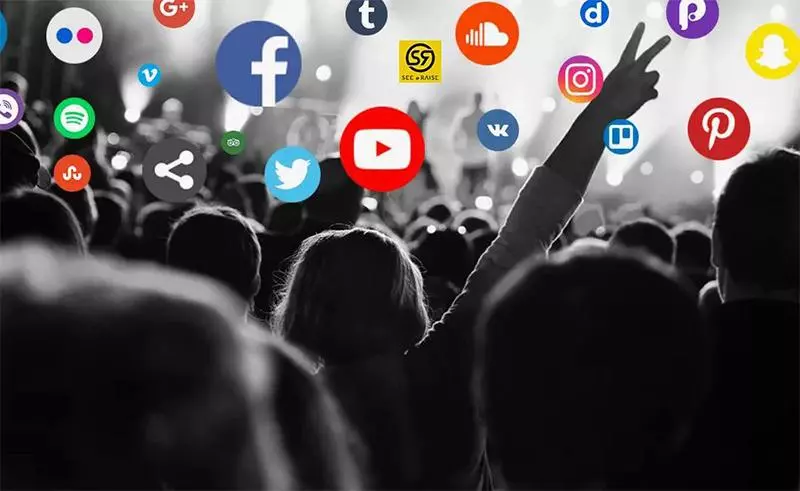
In today’s music industry, social media plays a crucial role. The way artists and their work are promoted has drastically changed with the shift towards digital platforms.
One of the most significant aspects of this shift is that labels no longer just sign new artists—they sign fanbases. This means that to catch the attention of A&R, it’s not enough to be talented. You need to show that you’ve built a large, active audience.
If your goal is to land a deal with a major label, you’ll have to prove your marketability. While this approach adds more work for musicians early in their careers, it also gives them greater control over the terms of their deals, which is incredibly valuable in the long run.
Whether you’re aiming for a label or choosing to stay independent, learning how to promote your music online has become a must-have skill for any artist serious about their career.
The Main Platforms to Promote Your Music
Spotify, Apple Music and other DSPs
Most of your listeners will enjoy your music through popular streaming platforms like Spotify and Apple Music, using playlists and saved tracks. That’s why it’s crucial to upload your songs to these services in a timely manner, either through a distributor like Distrokid or with the help of your team.
It’s worth noting that Spotify allows artists to submit their tracks for editorial consideration before the official release date. While Apple Music doesn’t offer this feature, independent artists can still make it into editorial playlists by actively promoting their music and increasing its visibility. To maximize your chances of landing in playlists and reaching a wider audience, make sure your music is uploaded to these platforms at least a month before the release date.
Reddit might not be the first platform that comes to mind when you think about promoting your music, but its topic-based structure makes it a great place to share your work and connect with other musicians. Sections like “Music Promotion” are a great starting point to get your tracks out there. You can also discover fans of similar artists in related subreddits, helping you attract new listeners to your music.
Discord
Discord offers a unique opportunity to create a space for your fans that’s free from algorithms. Through this platform, you can communicate directly with your audience, building an engaged community of dedicated listeners. It allows you to share exclusive content and even host listening parties for your fans. This is a great way to connect with your most loyal followers and foster a deeper relationship with them.
Instagram is a great platform for promoting your music and engaging with your audience. While the app has increasingly shifted its focus toward short videos, photos still remain an effective way to connect with your fans. Instagram Stories offer convenient features like adding links to your new tracks directly in your posts, making it easy for your listeners to stay updated on your latest releases.
YouTube
Believe it or not, YouTube is the most popular music streaming service, making it an essential tool for reaching new listeners. By uploading your music to the platform, you can help your fans dive deeper into your creative world through music videos. And these videos don’t need to be complicated or expensive—simple DIY videos can have a huge impact.
At the very least, you can create a visualizer or lyric video for your most popular tracks. If you don’t have the time or the skills to make these videos yourself, there are plenty of paid services that can turn your music into quality lyric videos. The more often you promote your songs with videos, the better your chances are of attracting new fans, as it’s one of the most effective ways to grow your audience.
SoundCloud
SoundCloud is a great platform for releasing tracks and testing songs before adding them to your official artist page. Use genre tags and engage with musicians in your niche to expand your network. The platform is also ideal for discovering new bands and artists who are at the forefront of emerging music trends. Plus, some listeners prefer to stream music exclusively on SoundCloud, so don’t miss the opportunity to promote your latest releases there as well.
If you’ve got a knack for witty, concise remarks and prefer expressing yourself with words rather than images, Twitter is the place for you. You can keep your fans updated on upcoming releases, posting schedules, and actively engage with them. Plus, hashtags on Twitter still play a big role in boosting content visibility. Make sure to include convenient links to your website or other pages in your profile, so fans can easily find more information.
While Facebook, now known as Meta, may seem less trendy compared to other social media platforms, it still holds value. You can use this platform to reach a new demographic and gain valuable insights that can help with ad targeting and better understanding your audience. Be sure to post all your tour dates on Facebook and invite your fans to attend. The platform’s intuitive interface makes it easy to track who’s planning to come to your events.
Music Blogs
In addition to streaming platforms and social media, music blogs can be a valuable tool for reaching new audiences and boosting your online visibility. Blog features can help solidify your reputation as an artist and provide you with more exposure. However, getting coverage in music blogs can be challenging. Indie artists often send direct emails to blogs, including links to their songs (ideally a month before release), press photos, a bio, and a statement about their artistic vision. Services like SubmitHub can also help streamline the submission process, though these playlist pitching platforms may come with additional costs.
Keep in mind that many music blogs are more likely to feature you as your online presence grows. It’s a bit of a catch-22: the more fans and activity you have on social media, the higher your chances of getting noticed by blogs. That’s why your social media efforts are crucial for success on all fronts.
How to Successfully Promote Your Music: 7 Key Strategies

Choosing the right platforms to promote your music matters, but only if you’re actively using them. Remember, you’re the one who decides how to market your music online, and no one can do it better than you. Success in your music career requires dedicating enough time to the platforms and strategies you choose. Hard work is the only thing that will bring results.
Don’t let perfectionism hold you back
When preparing to release a track, it’s natural to aim for perfection. However, don’t let the pursuit of perfection slow down your progress. Many musicians are overly critical of their own work, which can prevent them from moving forward. While you shouldn’t release unfinished material, if your peers believe the track is ready and you’ve been tweaking it for months, it might be time to let it go. Releasing it will free up mental space for new ideas and allow you to continue growing as an artist.
Create a unique sound and polish it
While good marketing can help any music succeed, the most effective way to stand out in a crowded market is to have something unique in your music. The tracks you upload to platforms like Spotify should not only be high-quality but also memorable. Streaming services act as your resume as an artist, so it’s crucial that your music leaves a strong impression.
Demo tracks can be useful for internal purposes or posted on your personal pages, but every release you share with the world should be something you’re truly proud of. Each song is a part of your artistic journey, and it should contribute something more than just being another track.
Consistency is key
In the highly competitive music industry, one of the hardest challenges isn’t just creating music but staying persistent and having the courage to keep going, even when you don’t see immediate results. Putting your work out there without instant feedback can be tough, but it’s essential to trust the process. Even the biggest artists once had no audience.
It’s up to you to keep releasing quality music and actively posting content to capture attention. Creating songs is just the first step! The real work begins with marketing and consistently engaging with your audience to build a genuine connection with your fans.
Adapt to analytics
One of the biggest advantages of promoting your music online is that most platforms provide access to analytical data. This allows you to quickly assess how your audience responds to certain types of content and adjust your approach accordingly.
Pay attention to how different promotional tactics yield different results, and use that data to refine your social media strategy. If a particular type of content performs better, focus on developing and replicating that success.
Don’t forget about offline promotion
While promoting your music online is crucial, don’t overlook the opportunities available in real life. Personal interactions and live performances remain powerful tools for growing your audience. Word of mouth is still one of the best ways to attract new fans.
Whether it’s playing a gig with friends, joining jam sessions, or performing at open mics, there are plenty of ways to get noticed in your community. Make it a point to meet at least one new person every time you attend a music event and share details about your upcoming shows. Stay in touch with your online audience to turn virtual connections into lasting relationships. You never know where your next fan might come from, so always be open to new opportunities!
One is the loneliest number
The music industry, while highly competitive, is also full of collaboration opportunities. Success is closely tied to your ability to connect with like-minded people in the business and expand your network. Building relationships is one of the keys to success, and it can help you figure out the best steps to take on your creative journey.
Thanks to digital technology, finding collaborators today is easier than ever, even if you’ve never met them in person. Use social media to engage with other creators and find ways to collaborate. Doing so will not only help you develop new skills and gain fresh perspectives on your work, but it will also attract new audiences, boosting your online presence.
There’s no one right way to collaborate in music. You could work on an official remix, contribute to a track, or earn songwriting credits for your input. If you don’t want to commit to large projects, try using social media features like “duets” or “stitch.” These tools make it easy to collaborate with other artists.
Social media offers endless possibilities for creative partnerships, so don’t be afraid to experiment. The more you connect and collaborate with fellow artists, the better your chances of success and expanding your fan base.
9 Tips for Successfully Promoting Your Music on Social Media
Creating quality music is an important step, but to achieve real success, you need to effectively promote your work. Social media offers incredible opportunities for engaging with your audience and growing your fanbase. Here are 9 key tips to help you increase your social media presence:
1. Develop a Clear Strategy
Effective marketing doesn’t have to be complicated. To make the most of your efforts, it’s crucial to create a detailed marketing plan. With a clear strategy in place, you can focus your efforts on what truly works and achieve greater success in promoting your music.
2. Maintain Consistency in Your Brand
Your image across social media should be consistent. Decide on the theme or vibe you want to convey, and stick to it across all platforms. Keeping your branding uniform across your accounts makes it easier for your audience to find you. Ensure that your username and style are consistent on all platforms.
3. Choose the Right Platforms
Not every social media platform is right for every musician. Some may feel more at home on Instagram, while others find it easier to create content for TikTok. Stick to the platforms where you feel comfortable and can consistently maintain a presence. This will help you focus on achieving real goals without spreading your resources too thin.
4. Analyze Data and Adjust Accordingly
Use analytics tools to monitor your social media activity. This will help you understand what works best and adjust your actions accordingly. Tools like Soundcharts can help you track data across different platforms and give you a clear picture of how your audience is interacting with your content.
4. Maintain a Balanced Posting Frequency
We all have that one artist who posts so much in a single day that it becomes annoying, filling your feed with unnecessary content. Don’t be that person. Posting too often is one of the fastest ways to lose followers. To avoid this, make use of different features on social platforms. For example, on Instagram, if you’ve reached your limit for posts in your feed, switch to Stories to keep things flowing without overwhelming your audience. It’s also helpful to plan out how frequently you want to post in advance to keep your content schedule under control.
Here are some general posting guidelines:
- Twitter: 1-4 times per day;
- Facebook: 4-7 times per week;
- Instagram: 1-2 times per week.
5. Engage with Your Fans
Social media is a great place to connect with your audience. One of the best ways to deepen that connection is by involving them in your creative process. For example, run a campaign where fans can submit their own artwork to be considered for the cover of your next album. Or, share a snippet of a new song and let them choose the title. Activities like this make your fans feel like part of the process, not just consumers.
6. Promote Your Content Smartly
If you have a new album or song coming out, break it down into multiple promotional posts. Build anticipation ahead of time and keep reminding your audience across all platforms. The key here is not to overdo it—find the sweet spot. Once you figure out the right promotional rhythm, it’s a great way to create excitement while keeping your fans engaged.
7. Plan Your Posts in Advance
When you have a lot of content to promote, it can be challenging to manage everything, especially when you’re busy creating music and handling other tasks. Luckily, there are plenty of tools that can help automate your posts. This makes the process much easier and helps you stick to your schedule while you focus on your creative work. Each platform offers its own scheduling tools, but services like Sprout Social, Pagemodo, and Hootsuite can help you coordinate posts across multiple platforms at once.
8. Be Authentic
One of the greatest benefits of social media is the ability to engage with your fans in real time. To build genuine connections, it’s important to be as authentic as possible. Fans can sense when you’re not being real with them, and if they do, they’ll stop engaging. Use this as an opportunity to learn what types of content resonate best with your audience. Focus on what works and avoid wasting time on what doesn’t. The more personal and authentic your content is, the stronger the connection with your fans will be.
9. Sync Your Posts Across Platforms
If you’re announcing a new song on Instagram, make sure you’re also promoting it across your other platforms. Consistency is key here because it helps you reach as many people as possible.
Pro tip: if your new track features other artists, make sure to tag them in your posts. Once the content is shared across all your platforms, those artists will likely repost it, further extending your reach.
Conclusion about music promotion in social media
Building your presence on social media takes time and effort. Don’t get discouraged if things don’t take off right away. Stay consistent in your efforts, and it will pay off. Social media is a long game, and the only way to win is to be patient, optimize your approach, and keep going.


